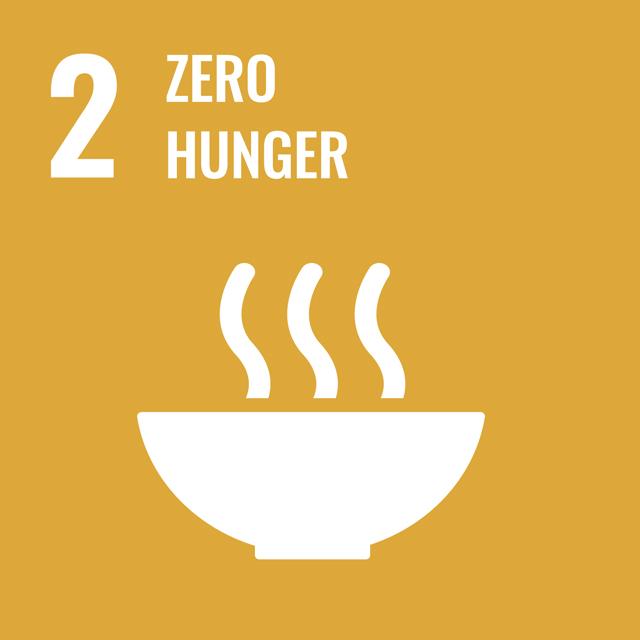Pursuing a career that aligns with SDG 2: Zero Hunger allows you to contribute to ending hunger and achieving food security globally. This goal focuses on sustainable agriculture, improving nutrition, and equitable food systems. Discover how your expertise can support the fight against hunger.
The Goal: Zero Hunger
This goal seeks to end hunger, achieve food security, and improve nutrition while promoting sustainable agriculture.
Objectives include ensuring access to safe, nutritious, and sufficient food all year round, eradicating all forms of malnutrition, doubling agricultural productivity and incomes of small-scale food producers, and ensuring sustainable food production systems and resilient agricultural practices.
The Work
Achieving SDG 2 requires enhancing agricultural productivity through sustainable practices, ensuring equitable access to nutritious food, and supporting small-scale farmers. It involves improving rural infrastructure, market access, and food storage systems. Additionally, tackling food waste and addressing the impacts of climate change on agriculture are essential. International cooperation and investment in agricultural research and innovation are vital to end hunger and achieve food security.
The Skills
Below is a list of key skills that are in demand for careers related to SDG 2. While it is not necessary to master all of these skills, familiarity with some of them can enhance your readiness and competitiveness in the job market.
- Agricultural Skills
- Food Preservation
- Nutrition Education
- Sustainable Farming Techniques
- Water Management
- Food Safety
- Resource Management
- Community Building
- Fundraising
- Policy Understanding
Engagement with Queen's and Kingston
Individuals can support SDG 2: Zero Hunger by donating to food banks, volunteering at soup kitchens, or supporting community gardens. You can also make an impact by reducing food waste, buying from local farmers, and raising awareness about food insecurity. Encourage your school or workplace to organize food drives or community meal programs to help create a world without hunger.
Volunteering in Kingston
Past QUIP Internships
Research and Development: Agriculture
Data Analyst - Agriculture Team
Private Label and Food Safety Intern
Sample Undergraduate Courses
HIST 406 Hunger in Modern European History
ENSC 315 Sustainable Food Systems
NURS 100 Nutrition and Health
Sample Graduate Courses
Career Possibilities
- Nutritionist
- Food Security Analyst
- Agricultural Scientist
- Agricultural Engineer
- Food Scientist
- Sustainable Agriculture Specialist
- Food Supply Chain Manager
- Sustainable Business Consultant
- Biotechnologist
- Data Analyst
- Development Project Manager
- Horticulturist
- Farm Manager
- Agriculture Policy Researcher
Corporations, NGOs, and Government Agencies
Corporations can contribute to SDG 2 by implementing sustainable agricultural practices, investing in R&D for better crop yields, and supporting fair trade practices. They can enhance food security by reducing food waste, promoting efficient distribution, and supporting initiatives addressing malnutrition.
Additionally, corporations can provide financial and technical assistance to farmers and foster partnerships to create sustainable food systems. Advocating for and adhering to policies on sustainable land use, water conservation, and biodiversity can ensure a long-term positive impact on global food security and nutrition.
- Agriculture and Agri-Food Canada
- Global Affairs Canada
- Crown-Indigenous Relations and Northern Affairs Canada (CIRNAC)
 Student Affairs
Student Affairs